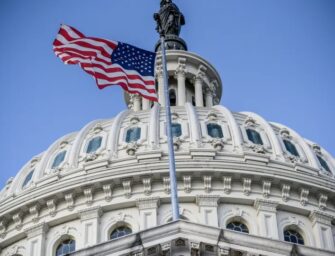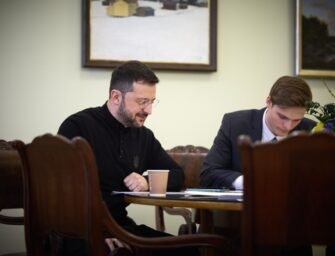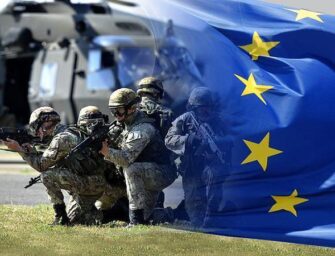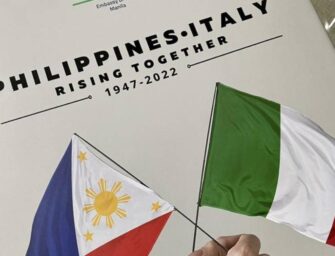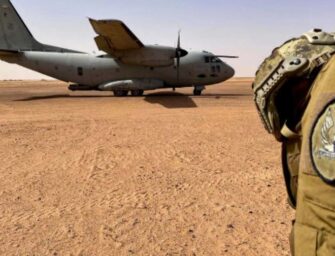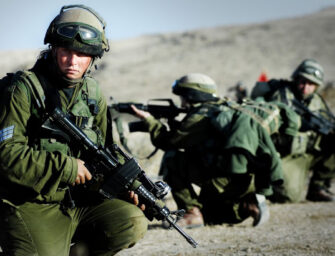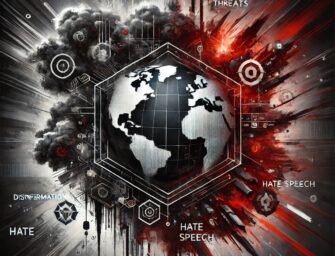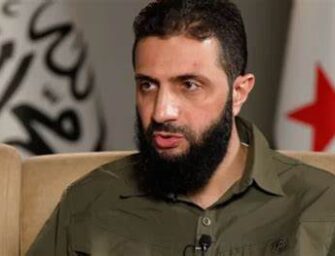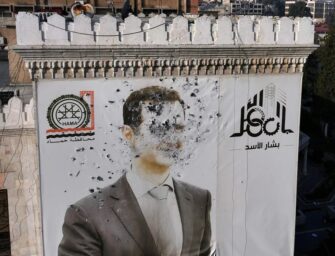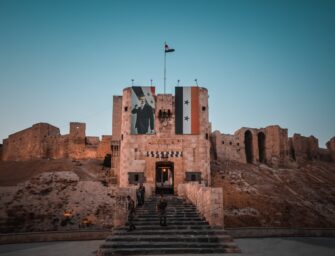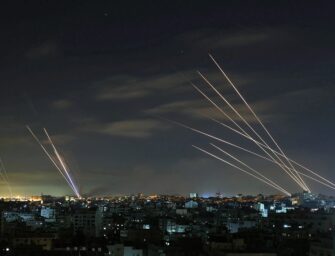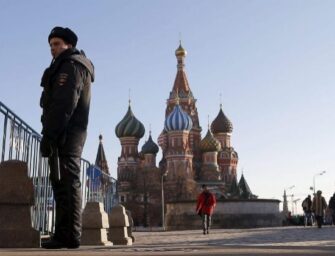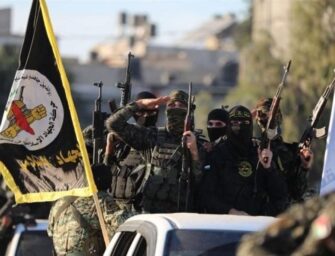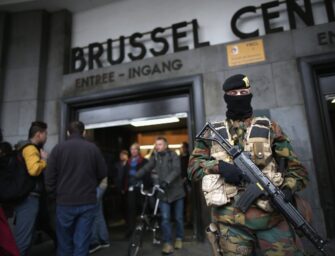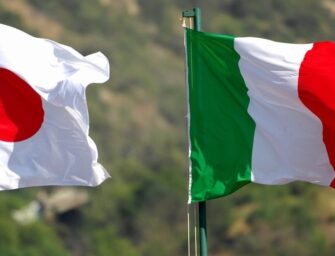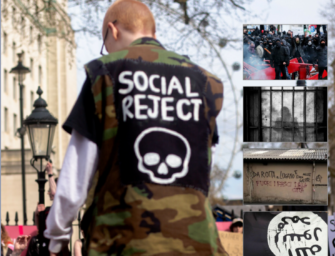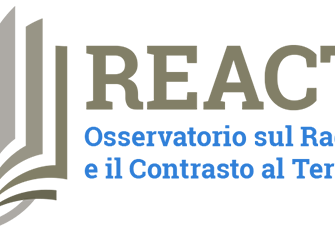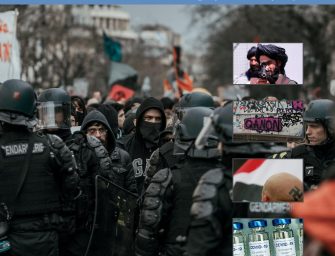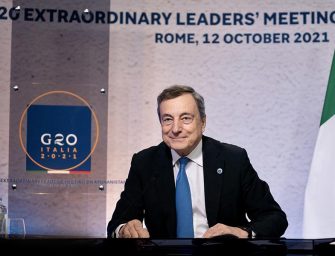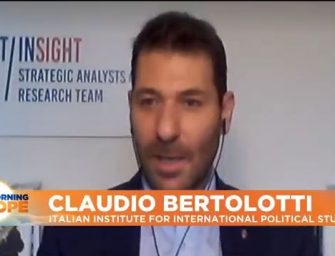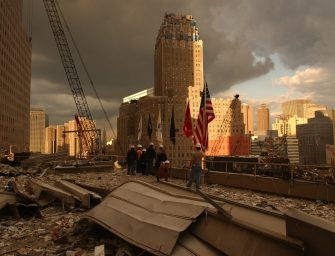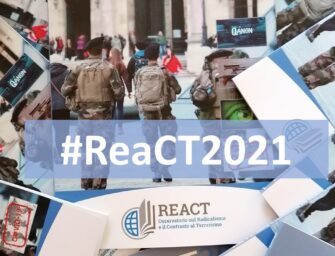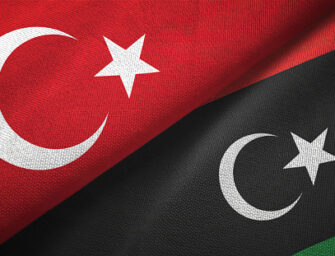Main events in the Maghreb and the Mashreq areas – September
Algeria: The growing importance of Algeria-Turkey relations
Both Algeria and Turkey are keen to build a relationship that is mutually beneficial- but challenges remain. Instability in the broader Middle East, in particular Libya, and a desire to broaden political and economic links, have brought Algeria and Turkey closer. Deepening relations between the two countries is still a relatively recent phenomenon. The “Friendship and Cooperation Agreement” signed in 2006 in Algeria under the current AK Party government, marks one of the first attempts by Ankara to re-calibrate its relations with the West and the global south. Since then, there have been an additional three state visits by Erdogan, the latest in January 2020, following the departure of Algerian President Abdelaziz Bouteflika who was pushed out of power and forced to resign in April 2019 (Gjevori, 2020).
Egypt: Egypt cuts interest rates by 50 bps as inflation subsides.
Egypt’s central bank unexpectedly cut its main overnight interest rates by 50 basis points on September 24th, saying exceptionally low inflation gave it room to help boost the economy. The bank’s Monetary Policy Committee (MPC) reduced the lending rate to 9.75 percent and the deposit rate to 8.75 percent. Inflation remained well below the central bank’s target range of 6 percent to 12 percent (MPC, 2020).
Israel: a new peace deal with the United Arab Emirates
US President Donald J. Trump and Israeli Prime Minister Benjamin Netanyahu on September 15th joined the foreign ministers of the United Arab Emirates and Bahrain at the White House to mark historic normalization agreements between Israel and the two Arab countries. Israel officially established full diplomatic ties with Bahrain and the United Arab Emirates (UAE). On the one hand, the agreement is a sign of Middle East peace, on the other hand it could be considered as the establishment of a new front against Iran and Turkey.
Lebanon: Macron attacks Hizbollah for failure to form Lebanon government
In less than a year, Lebanon has been hit by an economic meltdown, mass protests, financial collapse, a virus outbreak and a huge explosion in August that virtually wiped out the country’s main port, killing more than 190 people and causing up to $4.6bn worth of damage to the capital Beirut.
Recently, French president warns of ‘civil war’ and calls on Beirut’s politicians to compromise: French president Emmanuel Macron blamed the Iran-backed political party and paramilitary group Hizbollah for sabotaging the French-sponsored process to form a Lebanese crisis government and called on Beirut’s political class to try again over the next six weeks. Macron’s speech came after Lebanon’s prime minister-designate resigned on September 26th, saying he was unable to form an emergency government to tackle the overlapping crises which have left Lebanon suffering its most severe turbulence since its 15-year civil war ended in 1990 (Cornish, Abboud, 2020).
Morocco: Moroccan security chief warns of terror ‘time-bomb’ in the region
The Moroccan security chief Abdelhak Khiame, head of the Central Bureau of Judicial Investigation (BCIJ), warned that the so-called group Islamic State “has developed in the Sahel-Sahara region, with the conflict in Libya and in countries like Mali which do not control their security”. The Sahel covers western and north-central Africa. “Terrorist cells and terrorism are growing in the region but also organised crime networks, drug trafficking, weapons and human beings”.
About economy, the Minister of Economy, Finance and Administration Reform Mohamed Benchaâboun stated that the national economy is expected to grow by 4.8% in 2021. Given the scenario of the International Monetary Fund (IMF) concerning the recovery of the world economy (+5.2%), notably in the euro zone (5.3%), national economic growth should stand at 4.8%». However, this growth could not completely offset the economic contraction of 2020, which is forecast at -5.8%, due to the postponement of the recovery of some sectors such as tourism and related activities, as well as the deterioration of the labor market and corporate investment – the Minister stated.
Syria: Carabinieri arrest Italian ‘ISIS bride’ in Syria
The ROS unit of Italy’s Carabinieri police said September 29th that it has arrested Alice Brignoli, an Italian ‘ISIS bride’, in Syria. Brignoli was the wife of Mohamed Koraichi, an Italian with Moroccan roots who became an ISIS militant. The couple left Italy to join the so-colled Islamic State (IS) in Syria in 2015, taking their three children with them. Koraichi, who is thought to have died, took part in IS military operations while the ROS said that Brugnoli had an “active role in teaching the children the cause of the jihad”. She is accused of criminal association for terrorism. The ROS unit tracked down Brignoli and her four children – she gave birth to her fourth child in Syria – and have brought them back to Italy (ANSA).
UK government probing cyber-attack over Syria propaganda leaks. Hackers have penetrated the computer systems of the UK’s foreign ministry and taken hundreds of files detailing the country’s controversial propaganda programmes in war-torn Syria. In a security breach of enormous proportions, the hackers appear to have deliberately targeted files that set out the financial and operational relationships between the Foreign, Commonwealth and Development Office (FCDO) and a network of private-sector contractors that have been covertly running media platforms in Syria throughout the nine-year civil war (Middle East Eye, 2020)
Tunisia: Tunisia rejects any military solution in Libya
Tunisian Prime Minister Hichem Mechichi reiterated on September 28th that he rejects any military solution in Libya and intervention in its internal affairs. Addressing heads of Tunisian diplomatic missions, he said combining efforts to push the political settlement forward through an intra-Libyan dialogue under UN supervision. In response to the UAE and Bahrain signs of the US-sponsored agreements to establish diplomatic relations with Israel, Mechichi also stressed on Tunisia’s firm position on supporting the legitimate rights of the Palestinian people based on the 2002 Arab Peace initiative (Thabeti, 2020).
Main events in the Maghreb and the Mashreq – August
Algeria: beyond the crisis, Algeria allows private banks, airlines, sea transport firms
Algeria will allow its private sector to set up banks as well as air and sea transport companies for goods and passengers to reduce spending, President Abdelmadjid Tebboune said on 18th August. The move is part of wider reforms by the OPEC member to cope with financial problems caused by a sharp fall in energy export revenues, the main source of state funding for the North African country. Elected in December 2019, Tebboune wants to encourage private investors and improve the investment climate in an effort to develop the non-energy sector and reduce reliance on oil and gas.
Algeria’s foreign exchange reserves have fallen to $57 billion from $62 billion in January, while energy export revenues are expected to reach $24 billion this year compared with $33 billion in 2019, Tebboune said. Energy earnings currently account for 94% of total exports and the government aims to bring that figure to 80% from next year, while increasing the value of exports of non-energy products to $5 billion from $2 billion now, he added. To achieve that goal, the authorities will allocate $14.84 billion to help finance investment projects for the coming months (MEMO – Middle East Monitor, 2020).
Egypt: Greek deals with Egypt, Italy
The agreement for the partial designation of an exclusive economic zone (EEZ) between Greece and Egypt in the eastern Mediterranean was signed on August 6 in Cairo. For Athens, the deal effectively nullified a maritime accord between Turkey and the internationally recognized government of Libya signed last year. This agreement is part of a broader strategy of settling bilateral issues, building alliances with third parties in a way that promotes national interests, based on respect for international law. It is also a balanced agreement that is fully in line with the United Nations Law of the Sea, a piece of international law in which Turkey is one of only 15 countries in the whole world to not sign or ratify. The agreement with Egypt came after Greece signed a deal with Italy on June 9 which effectively extended a 1977 agreement between the two states on continental shelves in the Ionian Sea.
Israele: a new peace deal with the United Arab Emirates
Israel Prime Minister Benjamin Netanyahu and UAE Crown Prince Mohammed bin Zayed had agreed to a peace agreement: Israel it will temporarily “suspend” plans to annex the West Bank, as part of a new peace deal. The deal was announced by US President Donald Trump.
The UAE and Israel plan to exchange embassies and ambassadors, according to the statement. It will be the third Arab country to open relations with Israel, after Egypt and Jordan. Netanyahu formally thanked Egyptian President Adel-Fattah el-Sisi and the governments of Oman and Bahrain for their support to the normalization of relations between Abu Dhabi and Jerusalem.
But Palestinian Authority (PA) President Mahmoud Abbas trashed the peace agreement as “a betrayal of Jerusalem.” In a statement read out on Palestine TV, Abbas spokesman Nabil Abu Rudeineh said, “The Palestinian leadership rejects what the United Arab Emirates has done and considers it a betrayal of Jerusalem, the Al-Aqsa Mosque and the Palestinian cause. This deal is a de facto recognition of Jerusalem as the capital of Israel. The PA also announced it was immediately withdrawing its Ambassador to the UAE, according to a statement on the Palestinian news agency Wafa. Officials from the Palestine Liberation Organization (PLO) rejected the agreement, as did Palestinian militant group Hamas.
Lebanon: the Beirut explosion a Turning Point for Lebanon?
On the afternoon of 4th August 2020, two explosions occurred at the port of the city of Beirut, the capital of Lebanon. The second explosion was extremely powerful, and caused at least 177 deaths, 6,000 injuries, and US$10–15 billion in property damage, leaving an estimated 300,000 people homeless. The main blast at Beirut’s port was caused when an estimated 2,750 tons of ammonium nitrate had been ignited: ammonium nitrate is a highly combustible material used to make fertilisers and bombs. The appalling negligence that left more than 2,700 tons of ammonium nitrate stored in the port in unsuitable climatic conditions, with no expert oversight, for more than six years demonstrate the endemic corruption and incompetence of a country devasted by decades of settarian conflicts, absence of a governance and cynical political games played by regional States and internal actors. Exacerbated by the pandemic, the chronic corruption and misrule had brought the economy to ruin; because a long term economic and social crisis the State is going to fail, although Lebanon has been a failing state for years.
For months prices have been soaring and the middle class has been sinking into poverty and despair. For weeks, before the explosion, residents of the capital demonstrated against mismanagement and economic uncertainty. Since the day of the explosion, protesters tried to break the police and army cordons; as consequence, Lebanon’s parliament has approved a state of emergency that grants sweeping powers to the army: the state of emergency allows the army to curb free speech, freedom of assembly, and freedom of the press, as well as to enter homes and arrest anyone deemed a security threat. But it was not enough to contain the mass protests: the demonstrations prompted Prime Minister Hassan Diab and his cabinet to resign: but the crisis is too deep to be resolved by a change of management.
The impact of the crisis is terrific, especially in the urban areas. People try to leave or survive thanks to economic support from relatives abroad; others are resorting to some support from Hezbollah. Economic sanctions have made Iran less generous, but Hezbollah continues to maintain a widespread patronage network. The main short-term consequence is fragmentation and criminalisation. In the long term, it remains to be seen in which sphere of influence Lebanon ends up. Iran is trying to exploit the deadlock, but cannot alleviate its financial need. Hezbollah is now increasingly looking to China, such as the government that is trying to attract Chinese investment and China itself sees an additional hub in the East Mediterranean (in addition to the bridgeheads it already has in Egypt and Greece), (Holslag, 2020).
Libya: Turkey and Qatar sign military cooperation deal with Libya government
According to Ahval News, Turkey and Qatar have signed a tripartite deal with the Libyan government for military cooperation, in a new development set to enhance the government’s defence against the forces of Khalifa Haftar. The agreement, which was announced by Libya’s Deputy Defence Minister Salam Al-Namroush on 17th August, will establish military facilities and training programmes within the country. This cooperation will include Qatar’s funding of military training centres and the establishment of a trilateral coordination centre and Turkish naval base in the city of Misrata. Consultation will also be provided to Libyan government forces as part of the agreement.
Italy, which has been present in Misrata for years with its own military hospital, has been removed from the area, making the efforts made so far in vain. The same Italian staff will be redeployed near the capital Tripoli.
Syria: U.S. troop levels in Iraq and Syria would most likely shrink in the coming months
The top American military commander in the Middle East said that U.S. troop levels in Iraq and Syria would most likely shrink in the coming months, but that he had not yet received orders to begin withdrawing forces.
Gen. Kenneth F. McKenzie Jr., the head of the Pentagon’s Central Command, said the 5,200 troops in Iraq to help fight remnants of the Islamic State and train Iraqi forces “will be adjusted” after consultations with the government in Baghdad.
General McKenzie said he expected American and other NATO forces to maintain “a long-term presence” in Iraq — both to help fight Islamic extremists and to check Iranian influence in the country. He declined to say how large that presence might be, but other American officials said discussions with Iraqi officials that resume this month could result in a reduction to around 3,500 U.S. troops.
Despite President Trump’s demand last fall for a complete withdrawal of all 1,000 American forces from Syria, the president still has some 500 troops, mostly in the country’s northeast, assisting local Syrian Kurdish allies in combating pockets of ISIS fighters (Schmitt, 2020).
Morocco: Morocco, Portugal Pledge to Fight Against Irregular Migration
Portugal and Morocco have pledged to join efforts to curb irregular migration: Rabat and Lisbon announced the move in a statement following a videoconference between Portugal’s Minister of Internal Affairs, Eduardo Cabrita, and Morocco’s Minister of the Interior, Abdelouafi Laftit. The two officials built the conference’s talking points on the strong cooperation between Morocco and the European Union on security issues. They expressed their governments’ readiness to “intensify” their security cooperation within the broader EU-Morocco agenda of preventing and fighting against “illegal migration and human trafficking.” According to reports, the increasing shift towards Portugal is directly linked to Morocco’s success in curbing migrants’ attempts to reach Europe through Spain, which has long been the traditional route of waves of irregular migrants in recent years (Tamba, 2020).
Tunisia: Tunisia cracks down on migrant departures. Economic crisis worsens
Thousands of migrants disembarked on Lampedusa and Sicily in July and August. The governor of the Sicilian region has called on the federal government to call a state of emergency with hotspots above capacity and a number of migrants testing positive for coronavirus. The majority of the migrants who reportedly disembarked on Lampedusa and Sicily came from Tunisia. Italian authorities reported that in 2020, nearly half of the over 16,000 people who have landed on Italy’s shores departed from Tunisia.
Following pressure from the Italian foreign ministry, Tunisia announced on August 6 that it had made available more means to counter irregular migrant departures from the North African country. Tunisia has announced that it has made available naval units, surveillance devices, and search teams at Mediterranean crossing points to counter irregular migrant departures (ANSA).
Italy’s Interior Ministry has released €11 million ($13 million) to Tunisia’s government for use in efforts to stem the flow of migrants. On 18th August, Italian Interior Minister Luciana Lamorgese and Foreign Minister Luigi Di Maio visited Tunis, accompanied by European Commissioner for Home Affairs Ylva Johansson and European Commissioner for Enlargement and Neighbourhood Policy Oliver Varhelji.
The decision arrived in a critical moment for the country both at economic and political level: the economic situation is worsening and the tourism sector’s revenues down 56% at the end of July to 1.2 billion dinars compared to 2.6 billion in the same period last year (ANSA). Economic crisis is a push factors for Tunisian migrants. At political level, Tunisia’s prime minister-designate Hichem Mechichi said he would form a purely technocratic government following wrangling among political parties over the formation of the country’s next administration. The decision will likely put the prime minister-designate in confrontation with the Islamist Ennahdha Party, the largest political group in parliament, which announced it would oppose the formation of a non-political government. However, the proposal for a government of independent technocrats without political parties will win support from the powerful UGTT trade union and some other parties, including Tahya Tounes and Dustoury el Hor. Protests have erupted in the country’s interior this year over widespread unemployment, lack of development and poor public services in health, electricity and water.
Main events in Maghreb and Mashreq – July
by Claudio Bertolotti
original article in “Osservatorio Strategico” – Ce.Mi.S.S.: english version – italian version
Israel and Egypt
Israel will begin exporting natural gas to Egypt in November, with volumes eventually set to reach seven billion cubic metres a year. The supplies will mark the start of a $15bn export agreement between Israel’s Delek Drilling and US-based partner Noble Energy with an Egyptian counterpart in what Israeli officials called the most significant deal to emerge since the neighbours made peace in 1979. The deal signed early last year will bring natural gas from Israeli offshore fields Tamar and Leviathan into the Egyptian gas grid.
Lebanon
Possible dispute between President Michel Aoun and Prime Minister Saad Hariri over referring the shooting of two members of the Lebanese Democratic Party in the Druze area of Aley to a senior Judicial Council. The political repercussions of the deadly event have paralyzed government at a critical moment and risk complicating efforts to enact reforms needed to steer the heavily indebted state away from financial crisis.
Syria
Turkish President Recep Tayyip Erdogan said his country is determined to destroy “to pieces” what he called a “terror corridor” in northern Syria – regardless of whether or not Turkey and the United States agree on the establishment of a safe zone. Ankara wants a zone along the border with Syria that would be cleared of the Kurdish fighters. It also says such a zone would be safe for Syrians and allow some of the country’s refugees to return. Turkey has warned of a possible new offensive into Syria if an agreement on a safe zone is not reached, and has recently been sending reinforcements to its border area.
Algeria
Protesters remain in Algeria’s streets, having forced President Abdelaziz Bouteflika’s resignation in April. In this uncertain transition period, important questions face two groups key to Algeria’s political future: protesters and military personnel. According to a new Brookings institute report – titled “Algeria’s uprising: A survey of protesters and the military” – the results show a wide support for change among protesters, while illustrating a divide between the upper and lower ranks of the Algerian military in support for the protest movement. While 80% of the lower ranks support the goals and continuation of the protests, “the senior officers, by contrast, are a bit more hesitant, [as] only 60% are saying that they support the protests”.
Morocco
In his speech for this year’s Throne Day on 30th of July, Moroccan king Mohammed VI announced new development programs and a government reshuffle for domestic policy. For foreign policy, he called again for dialogue with Algeria and for ”unity among North African populations”. As concerns the Western Sahara, Morocco’s position remains ”firmly anchored to territorial integrity”. To celebrate his 20 years as king, Mohammed VI pardoned 4,764 detainees, including some detainees for terrorism.
Libya
Libya’s national oil company has suspended operations at the country’s largest oil field over the “unlawful” closure of a pipeline valve. The National Oil Corporation announced the move without saying who was behind the closure of the pipeline linking the Sharara oilfield to the port of Zawiya, on the Mediterranean coast. The Sharara oil field, which produces around 290,000 barrels a day worth $19 million, is controlled by forces loyal to Khalifa Hifter, head of the so-called Libyan National Army which launched an offensive in April to capture the capital.
Tunisia
President Béji Caïd Essebsi died the 25th of July at the age of 92. The interim, the president of the Parliament, Mohamed Ennaceur (85 years old), took over the position of head of state. The elections will take place on September 15. Institutional and economic crisis and jihadist threat: Essebsi’s death occurs in a period of potential destabilization for the North African country.









